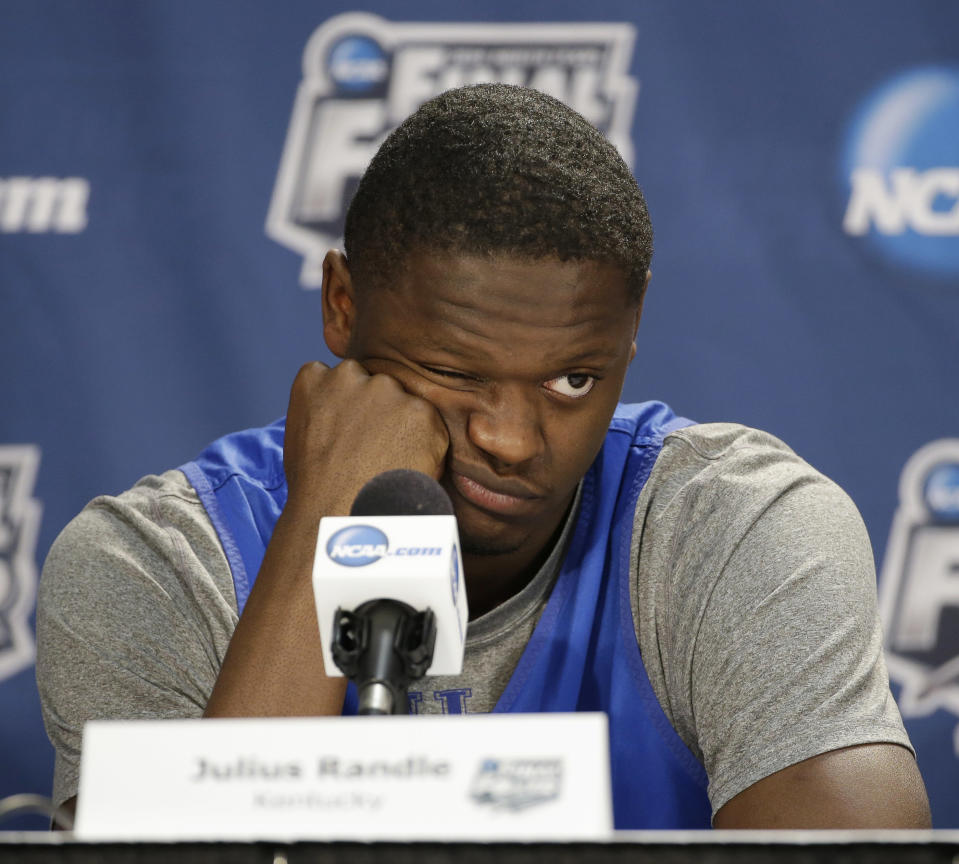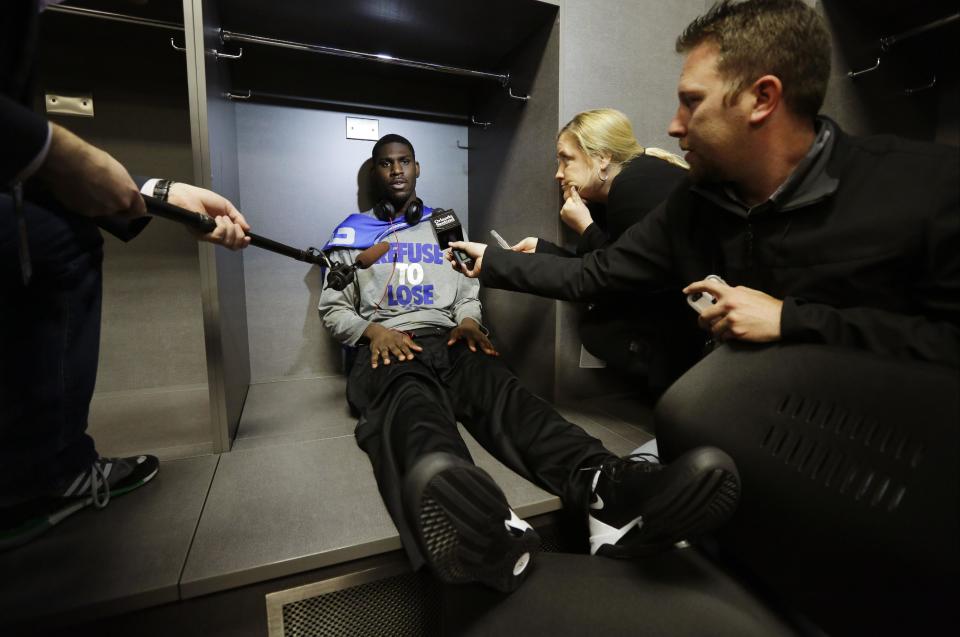Kentucky's slow progression meets end of road
ARLINGTON, Texas (AP) — Losses are no easier to stomach in November than in March, Kentucky coach John Calipari makes clear, but they are somewhat easier to accept if they are the byproduct of progress.
You see, sometimes you have to take a step or two backward to make giant leaps forward.
So while Calipari was bemoaning the growing pains that came with fielding a team full of freshmen, and a process that seemed to be taking an insufferable amount of time, he also knew in the back of his mind that the Wildcats were slowly starting to get it.
There is no greater evidence of that than the fact that Kentucky, seeded eighth in the NCAA tournament, will try for its ninth national championship on Monday night against Connecticut.
"The thing that this team had to learn was the grind," Calipari said. "How hard it was going to be and how hard you had to work every single day. They had to learn that."
It took them a while, too.
The Wildcats were picked preseason No. 1, an honor bestowed on them despite failing to make the NCAA tournament a year ago. It was due largely to one of the greatest recruiting classes in history, including six McDonald's All-Americans.
But most of those players had never been tested at a high level. They were always the best players at their school yards, or the best on their high school teams.
For the first time, they were going against players who could match up with them. And they didn't seem to understand that they were going to have to adjust.
"We had some things that were missing," said Aaron Harrison, the freshman guard whose late 3-pointer lifted Kentucky to a 74-73 victory over Wisconsin in the semifinals.
"We all just needed to get on the same page," he explained. "Coach emphasized being able to play for each other, and I think that's what we started doing. We didn't know how to do that at first. We were all the stars of high school and shot the ball 25 times, so we had to understand how to play for each other. That made us a great team."
Eventually. After their coach nearly pulled out his perfectly styled hair and stomped around so much during games that his already ailing hip had nearly started to squeak.
Calipari blamed himself throughout the NCAA tournament for letting his team down early in the season. He did a poor job of defining their roles, and he struggled to adjust the tenants of his dribble-drive offense to the strengths of his young, inexperienced players.
So he changed. He simplified things. Over the course of the season, he ground the game down to the very basics. And by the time the SEC tournament rolled around the Wildcats were ready to fly.
Kentucky ran roughshod all the way to the title game, and came within a last-second slip of knocking off mighty Florida. The momentum carried right into the NCAA tournament, where arguably one of the most mis-seeded teams ever navigated one of the most stacked regionals the tournament has ever seen: Kansas State, Wichita State, Louisville and Michigan.
"We just had too much talent," said Julius Randle, perhaps the most highly touted of the Wildcats' freshmen, "and we saw in spurts how good we could be, so we just felt like it was a matter of time before it clicked."
That is what Calipari strives for, of course, everything clicking at the right time.
He is willing to lose a game or two early in the season, as much as it might pain him, if there is tangible proof of progress. And the way the Wildcats sharpened themselves to a fine point just in time for NCAA tournament makes those 10 defeats easier to digest.
"They were so young," Calipari said upon reflection. "They needed me to be a little different than I was throughout the year. I think that I've never practiced this long, this late in the year, and they ended it. I've never really done some of the things that I've done with this tam this late, but they needed it. And they have responded to it."





